
Awards Committee
The Awards Committee oversee the evaluation of all nominations received in the annual Biochemical Society Awards.
Awards Committee Terms of Reference
Awards Committee
16 members

Professor Steve Busby
Professor Steve Busby

Steve Busby is currently the Professor of Biochemistry at the University of Birmingham. After studying Biochemistry as an undergraduate at the University of Cambridge, Steve moved to Oxford for his doctoral studies, supervised by George Radda. Since his appointment in Birmingham, his research has focussed on the molecular mechanisms that control gene expression in bacteria, with particular attention to studying the regulation of transcript initiation in Escherichia coli. Recently, this work has concentrated on applications of bacterial regulatory circuits to biotechnology, and understanding the expression of virulence determinants in pathogenic strains. As well as running his research group in Birmingham, Steve has served as both Head of School and Dean of Science. Steve has had a long association with the Biochemical Society and was a trustee from 2011-2016, when he served as vice-Chair, and then Chair, of the Society. Steve was elected as a Fellow of the Royal Society in 2005, and he is also a Fellow of both the American and the European Academies of Microbiology.

Professor Dame Julia Goodfellow
Professor Dame Julia Goodfellow

Dame Julia is currently President of the Biochemical Society. She was Vice-Chancellor and President of the University of Kent from 2007 until 2017, the first female President of Universities UK and a member of the Prime Minister’s Council for Science and Technology. She is a fellow of the Academy of Medical Sciences, Royal Society of Biology and the Institute of Physics and is an honorary member of the Biochemical Society. Julia’s scientific studies pioneered the use of computational methods to study the structures of large biologically important molecules. She became Professor of Biomolecular Sciences in 1995 at Birkbeck, University of London, where she was appointed Vice-Master from 1998 –2002. Before joining the University of Kent, Julia was Chief Executive of the Biotechnology and Biological Sciences Research Council (BBSRC).

Professor Nicholas Morton
Professor Nicholas Morton
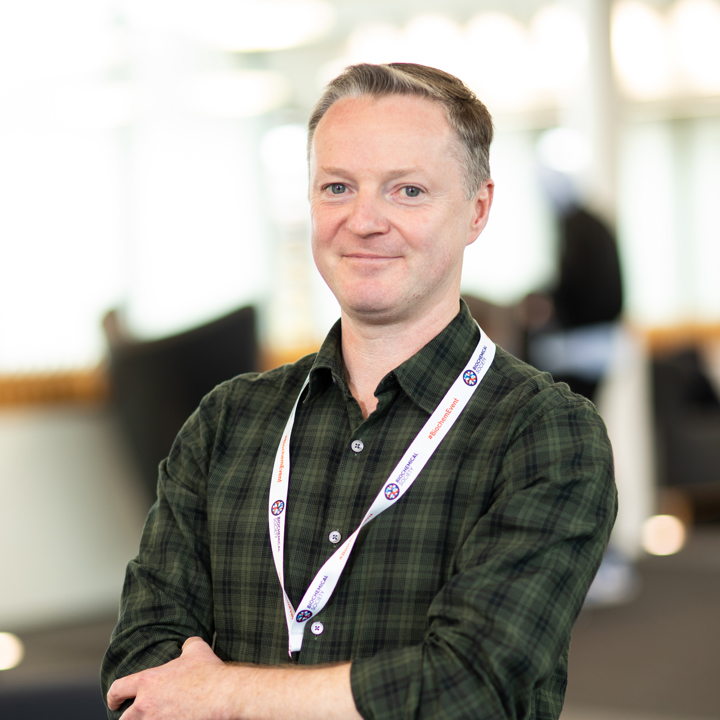
Nicholas' research aims to identify the causes of one of the greatest healthcare challenges facing global society: the obesity pandemic. He leverages population human genetics and preclinical models to identify and develop potential new therapeutic targets for “civilisation diseases” associated with obesity, such as type 2 diabetes that are further driven by our advancing population age. Nicholas works with government, charity, education/public engagement, and industry stakeholders.

Dr Andrew Walsh
Dr Andrew Walsh


Dr Andrew Mayes
Dr Andrew Mayes


Nectarios Nicolaou
Nectarios Nicolaou
Nectarios Nicolaou has been active in the field of Clinical Biosciences for over fifteen years. He began his studies at Intercollege, Nicosia, Cyprus and the University of Indianapolis, USA, achieving a Diploma in Pre-Medicine. Subsequently, he studied at Kingston University, London, UK and obtained a Bachelor of Science Degree in Medical Biochemistry in 2006. Returning to Cyprus, he joined the newly established Aretaeio Hospital in Nicosia, as a member of the Clinical Laboratory department. While there, he was accepted as a postgraduate student in Immunology and Immunogenetics at the University of Manchester, UK. Focusing his research interest on the pathogenesis of autoimmune diseases, he investigated the changes of the levels of two adipokines, leptin and adiponectin, as well as their potential use as inflammatory markers in patients with active rheumatoid arthritis.
As of October 2019, he is a doctoral researcher at the Department of Pharmacy, School of Health Sciences, Frederick University, Nicosia, Cyprus, aiming to investigate and evaluate various biochemical and genetic parameters as potential diagnostic factors in young adolescents with delayed puberty. He is a Chartered Biologist (CBiol) and Member of the Royal Society of Biology (MRSB) as well as a member of the Biological Society of Cyprus where he sits on the Health Committee. In addition, he is a member of the Biochemical Society, participating in the Awards Committee and the Early Career Researcher (ECR) Taskforce. He is a registered member of the Institute of Biomedical Science (MIBMS), the British Society for Immunology, the British Society for Antimicrobial Chemotherapy, the Hellenic Society of Immunology, the Society of Biological Sciences in Cyprus and the Cyprus Association of Clinical Laboratory Directors, Biomedical and Clinical Laboratory Scientists. As of October 2015, he collaborates with Frederick University in Nicosia as Special Teaching Staff for undergraduate and postgraduate programmes on the topics of Clinical Biochemistry and Immunology.

Professor Patrick Eyers
Professor Patrick Eyers
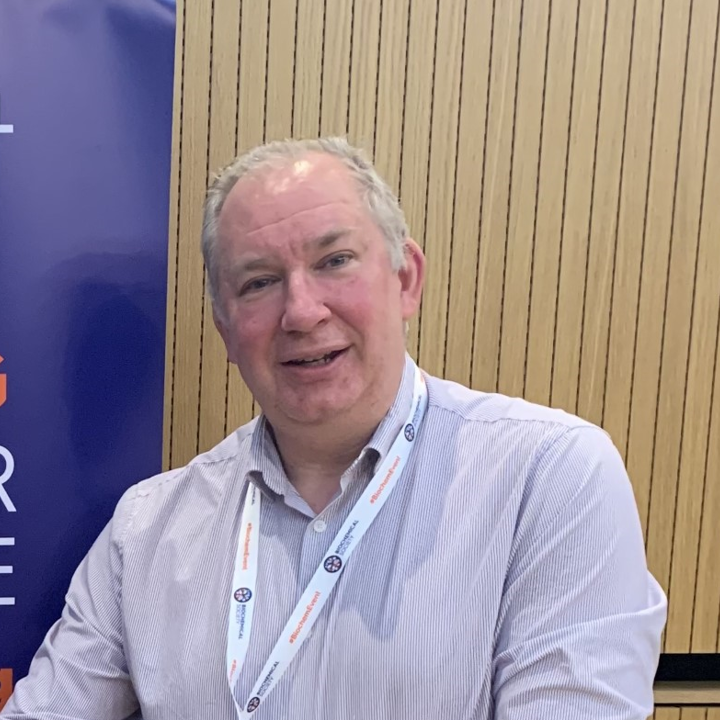
Pat is the Johnston Chair of Biochemistry, Professor of Cell Signalling and Head of the Department of Biochemistry, Cell and Systems Biology at the University of Liverpool. He obtained an undergraduate degree in Biochemistry at the University of Bristol, and completed his PhD with Sir Philip Cohen at the University of Dundee in 2000. After 4 years of postdoctoral research in the USA with the late Jim Maller, he set up his laboratory in the UK with an MRC Career Development Fellowship in 2005. His interests include all aspects of protein phosphorylation and sulfation, redox-based analysis of protein kinase and sulfotransferase regulation, pseudokinases and pseudoenzymes and kinome-wide mechanisms of acquired drug resistance in cells. He also teaches cell signalling, running modules explaining the biochemical mechanisms underpinning cell communication. In 2022, he spun-out the biotech company Sulantrix from the University of Liverpool, with a goal of developing a new generation of anti-cancer agents targeting pseudoenzymes such as pseudokinases.

Professor Paul England
Professor Paul England


Professor Pete Cullen
Professor Pete Cullen

Professor Cullen is the Royal Society Noreen Murray Research Professor in the School of Biochemistry at the University of Bristol. Pete's group combines new experimental protocols utilizing the power of quantitative proteomics to identify sorting complexes and achieve an unbiased global analysis of the cargoes that they sort. In combining these molecular approaches with in vivo studies in model organisms and collaborative genetic analysis of patient cohorts, Pete's research aims to define the underlying defects in endosomal sorting and signaling that occur in human disease.

Dr Laura Rosenberg
Dr Laura Rosenberg

Laura Rosenberg is the Director of Target Validation within Discovery Sciences at AstraZeneca Cambridge. A cell biologist by training, Laura has over 12 years' experience leading cross-discipline teams focused on the translation of novel and complex biology into drug discovery impact. Since 2021, her group at Astrazeneca has focused on the delivery of novel oncology targets to the pipeline driven by the belief that an enhanced understanding of disease/disease mechanism is required for effective drug discovery and to enhance chance of clinical success. During her time at AZ, Laura has contributed to shaping the Functional Genomics strategy, utilizing this approach to drive deeper understanding of drug response, guide patient selection, inform rationale combinations and identify strategies to overcome resistance. Prior to joining AstraZeneca, Laura led a bioscience team at Cancer Research Horizons where she played a pivotal role in the establishment of industry partnered alliances. Here she worked closely with the CRUK academic network to deliver and progress numerous target opportunities, leading both bioscience and multi-disciplinary projects teams from concept to candidate. Laura is a member of the ELRIG General Committee, The Biochemical Society Awards Committee, a PhD supervisor (Univ. Cambridge) and currently sits on the SAB for Worldwide Cancer Research.

Professor Ian Wood
Professor Ian Wood
After doing a BSc in Biochemistry at Imperial College and a PhD at University College London, Ian took a post-doctoral position at the Scripps Research Institute in La Jolla to investigate regulation of gene expression brought about by cell adhesion. Ian returned to University College London to continue his focus on gene regulation and then obtained a fellowship at the University of Leeds to start his own research group and expanded his interest to encompass chromatin regulation and epigenetics. Ian is currently Professor of Molecular Neuroscience and has an interest in regulation of gene expression and the modulation of chromatin in the ageing and diseased brain.
Keywords: Neuroscience, Gene regulation, Epigenetics, Neurodegeneration
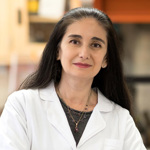
Dr Maria Luisa S. Sequeira Lopez
Dr Maria Luisa S. Sequeira Lopez
Maria Luisa S. Sequeira-Lopez, MD. FAHA, is the Harrison Distinguished Professor of Pediatrics and Biology at the University of Virginia. Dr. Sequeira-Lopez received her MD from the University of Buenos Aires, Argentina (1990), completed a Pediatric Residency (1994) and Fellowship (1997) at the Hospital Garrahan, Buenos Aires, Argentina. Next, she joined the University of Virginia, School of Medicine, USA (1998) for a postdoctoral training in kidney development and renin cell differentiation and obtained a Howard Hughes Medical Institute Postdoctoral Fellowship, followed by continuous funding from the National Institute of Health. Her research program examines the fundamental contributions of kidney vascular development to disease and regeneration with a special focus on renin cells. She identified the earliest progenitors for all cells in the kidney vasculature and the mechanism whereby they differentiate into renin cells, smooth muscle cells, and endothelial cells. Her work has demonstrated a crucial role of kidney vascular progenitors in tissue regeneration with enormous implications in kidney disease and hypertension.
Keywords: Renin-angiotensin aldosterone system, cell fate, cell plasticity, vascular development, regeneration, epigenetics.

Dr Emily Flashman
Dr Emily Flashman
Dr Emily Flashman is currently Associate Professor of Molecular Plant Science in the Department of Biology, University of Oxford. Emily gained her B.Sc. in Biochemistry at the University of Southampton, conducting research with Prof. Keith Fox on triple helix DNA. She then gained her D.Phil. in the Department of Cardiovascular Medicine in Oxford investigating interactions between heart muscle proteins and how these are impacted by disease-causing mutations. She then moved to the Department of Chemistry in Oxford where she conducted post-doctoral research with Prof. Chris Schofield on the structure and mechanism of human oxygen-sensing enzymes. Emily started her independent career with a Royal Society Dorothy Hodgkin Fellowship, with which she transitioned to studying plant oxygen-sensing enzymes and their role in adaptive responses to flooding. She now holds a position in the Department of Biology where she continues her work on plant enzymes involved in stress sensing and how these might be engineered for improved stress tolerance.
Keywords: Enzyme kinetics, Protein engineering, Oxygenases, Hypoxia
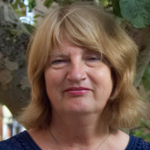
Professor Sarah Newbury
Professor Sarah Newbury
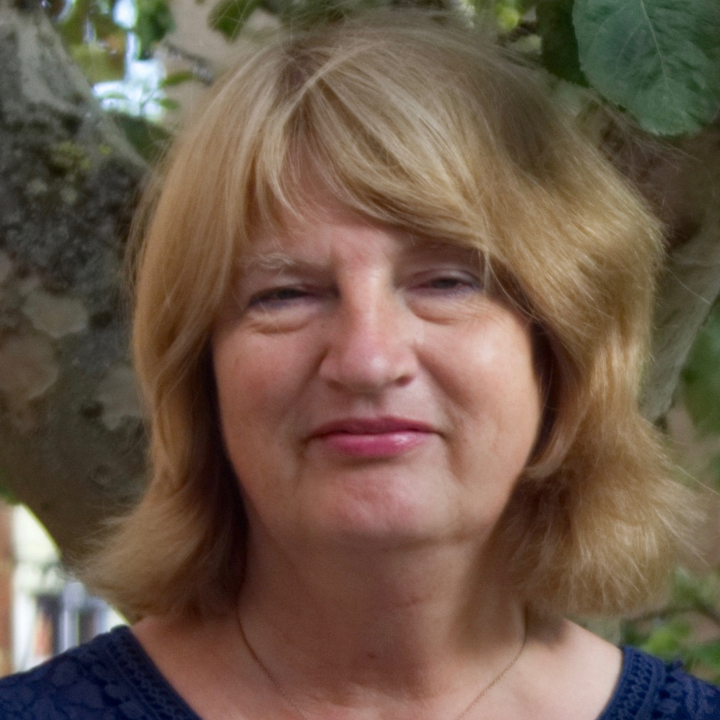
Sarah is a Professor in RNA Biology at Brighton and Sussex Medical School (BSMS), University of Sussex. Sarah was educated at the University of Edinburgh (B.Sc (Hons) in Biological Sciences) and then completed a PhD at the University of Leeds. After that she carried out postdoctoral research at the University of Dundee (Department of Biochemistry) where she moved into the field of RNA stability and gene expression. She was awarded a Royal Society Fellowship which she used to carry out independent research at the University of Portsmouth before continuing with her research as a Lecturer at the Universities of Oxford (Dept. Biochemistry) and Newcastle (Cell and Molecular Biosciences) before moving to BSMS at the University of Sussex in 2007. Sarah has undertaken a number of roles at BSMS including Director of Doctoral Studies, Early Career Research Lead and Director of Research. Sarah’s research aims to understand the molecular control of RNA degradation and how this impacts upon development, disease and cellular mechanisms. She has also been involved in identifying microRNAs in circulating blood which may be useful as prognostic or diagnostic biomarkers. In collaborative research, she is also interested in the RNA-binding proteins associated with progress on Acute Myeloid Leukaemia (AML).
Keywords:
“RNA Biology”, RNA turnover, long non-coding RNAs, microRNAs, Drosophila development, exoribonucleases, microRNA biomarkers.

Dr Femi Olorunniji
Dr Femi Olorunniji

Femi is a Reader in Synthetic Biology with an interest in protein engineering and their applications in Synthetic Biology. His lab aims to engineer novel protein functions for use as molecular tools/devices in metabolic pathway engineering, genome editing, genetic switches and memory devices.
Keywords:
Synthetic Biology, Bioinformatics, Genome Editing, Protein Engineering.

Dr Jonathon Nixon-Abell
Dr Jonathon Nixon-Abell

Dr Nixon-Abell is a Principal Investigator at the Cambridge Institute for Medical Research. Jonathon obtained a joint PhD from University College London (London, UK) and the National Institutes of Health (Bethesda, USA), before working as an ORISE and HHMI visiting postdoctoral fellow at HHMI Janelia (Ashburn, USA). Jonathon returned to the UK as a Sir Henry Wellcome Fellow at the University of Cambridge, before setting up his lab as a Wellcome Career Development Award Fellow. His lab researches the molecular mechanisms underpinning organelle interactions and dynamics in neurons, and how these processes are corrupted in neurological diseases.
Keywords:
Neurobiology, Cell biology, Neurodegeneration, Emerging technologies, Microscopy




